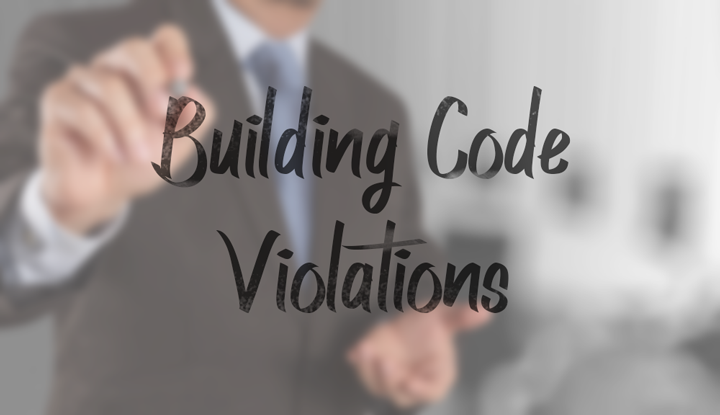Numerous factors can lead to code violations on your property, and attempting to sell it under such circumstances can be an incredibly arduous task. Regardless of the reason behind your decision to sell, finding a buyer becomes challenging when your property fails to meet housing regulations.
Thankfully, there are strategies you can employ to expedite the sale of your real estate. Below, you’ll find valuable tips on how to successfully navigate the process of selling a home with code violations. By implementing these recommendations, you can increase your chances of selling your property promptly and efficiently.
Can You Sell A Home With Code Violations?
Certainly, it is possible to sell a house with code violations; however, to avoid potential fines, either you or the buyer must address the code violations before the final sale. This is because most mortgage lenders are hesitant to approve loans for properties with significant code violations.
One option is to handle the issue independently, although you will be responsible for covering the associated expenses. Another approach is to negotiate with the buyer, potentially reducing your asking price. However, many buyers may choose to walk away from the deal if they are required to undertake the necessary repairs.
It is crucial to determine the underlying reasons for the code violations and calculate the cost of resolving them. If the repairs are relatively affordable, it may be worthwhile to address them yourself. However, if the costs are substantial, an alternative option is to explore selling to a cash buyer who is willing to purchase the property as-is. This can provide a more convenient solution, allowing you to move forward without the burden of costly repairs.
Do You Have to Fix Code Violations Before Selling A House?
Over time, many homes have complied with building codes, but with constantly evolving local city codes, it can be challenging for every property to keep pace. To address potential health and safety concerns, most jurisdictions require homeowners to bring their homes up to code. Failing to do so can result in substantial fines.
Each local city has its own set of requirements for sellers to ensure the property meets code standards before selling. For instance, you might need to replace lightbulbs in closets with fully enclosed ones. Thankfully, most of these upgrades are straightforward and relatively inexpensive.
If you find yourself needing to sell a home with code violations, it is advisable to arrange a comprehensive home inspection to determine the severity of the issues. In many states, sellers are legally obligated to disclose any code violations in the sales agreement before transferring the property. By being transparent about these violations, you can establish trust with potential buyers and work towards finding a mutually beneficial resolution.
Common Code Violations That Will Come Up During Sale
To ensure compliance with building codes, it is essential to consult your local city jurisdiction regarding the specific regulations that apply to your property. Various code violations may necessitate repairs, and some of the most frequently encountered ones include:
- Electrical Panels. Many homes (especially older ones) have outdated electrical systems. Not only are they inefficient, but they can also be dangerous for inhabitants. As a result, most mortgage providers require that the seller upgrades their electrical systems to be code-compliant before listing their homes for sale.
- Plumbing Issues. Faulty plumbing can lead to a wide variety of problems for a homeowner. Water damage can render a home unlivable if it gets too severe. The seller will likely need to conduct a home inspection to ensure all plumbing systems are working correctly.
- Pests. A home infested with pests would naturally be extremely difficult to list for sale. Since they can cause safety and health problems, pests are a serious code violation. The seller will need to clear the pests from the property if they ever want to list it on the market.
How Do I Fix These Code Violations?
Fix the problem yourself
As previously discussed, opting to resolve the code violations yourself is generally the most convenient path to take. Although it requires a financial investment, bringing your house up to code significantly simplifies the selling process.
Certain code violations can be remedied with ease and at a minimal cost. For instance, the installation of smoke alarms outside your bedrooms may be the only necessary step. However, addressing electrical or plumbing issues might involve slightly higher expenses. Nonetheless, by rectifying these concerns, you can avoid the need to reduce your asking price (as explained below).
By ensuring your property meets the required codes, you enhance its marketability and facilitate a smoother sale. Potential buyers will be more inclined to consider your house, knowing that it complies with regulations and safeguards their investment. It is a proactive measure that can positively impact the selling process and potentially maximize your overall return.
Lower Your Asking Price
If the seller prefers not to address the code violations themselves, the responsibility typically falls on the buyer. Convincing someone to cover the costs may not be difficult if the issues are minor. However, substantial maintenance requirements may prompt them to reconsider the transaction.
Lowering your asking price can be an effective strategy to persuade buyers to proceed with the sale. By setting a reduced price, you provide them with additional funds that can be allocated towards bringing the property up to code. However, it’s important to note that this approach may invite criticism and resistance from potential buyers.
Moreover, the presence of code violations can pose challenges for the buyer when it comes to securing a mortgage. Therefore, this option is usually viable only if the necessary repairs are inexpensive and relatively straightforward to address. Evaluating the scope of the repairs and their financial implications will help determine the best course of action for both the seller and potential buyers.
Find A Cash Buyer
If you have a desire to sell your property in its current condition, the most favorable approach is to seek out a cash buyer. By opting for this route, you can bypass the need for a mortgage, allowing the buyer to swiftly assume ownership and undertake any necessary repairs.
Collaborating with a competent real estate agent enables you to list your home on the open market. However, securing a dependable cash buyer can prove to be challenging. Not everyone possesses the financial means to purchase a property outright, particularly if the value of your property is substantial.
Nevertheless, you and your real estate agent have the opportunity to devise enticing terms that can entice cash buyers to consider your property. By exploring flexible and favorable arrangements, you can potentially attract interested cash buyers who are more willing to explore the possibilities of acquiring your property.
In Conclusion
Undoubtedly, navigating the sale of a property with code violations can present its challenges. It is crucial to identify the specific codes with which your home fails to comply and seek the most suitable resolution in order to prepare it for listing. Engaging the expertise of a seasoned real estate agent to conduct a thorough inspection can provide valuable insights into the feasibility of selling your home in its current condition.
For reliable guidance and professional advice, feel free to contact us, 1st Key Homebuyers. We are well-equipped to assist you in finding the right path forward if you are faced with the need to sell a home that has code violations. Our team is dedicated to offering the support and direction you require during this process.

